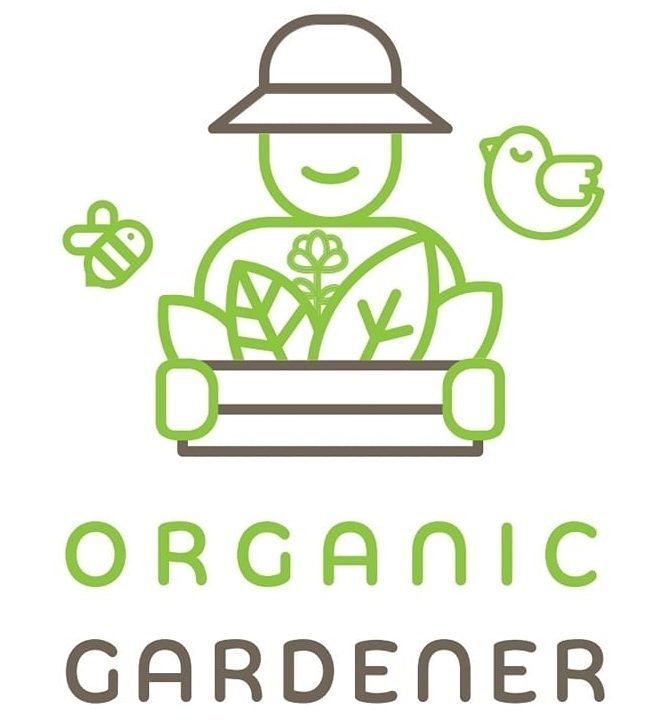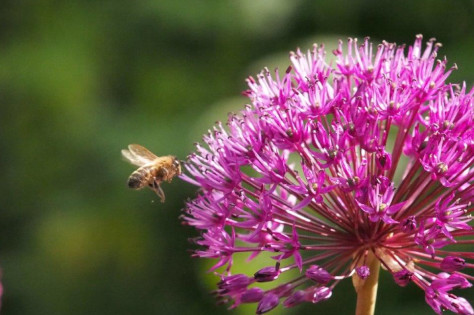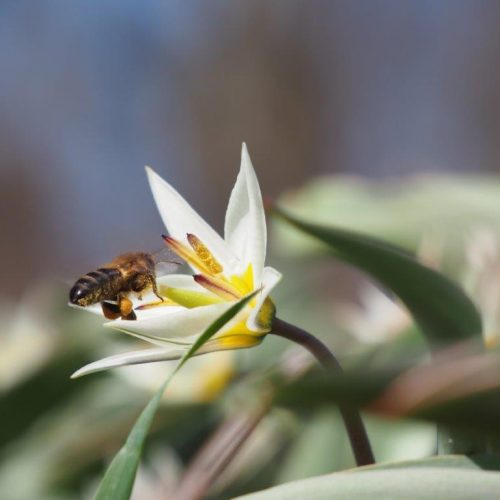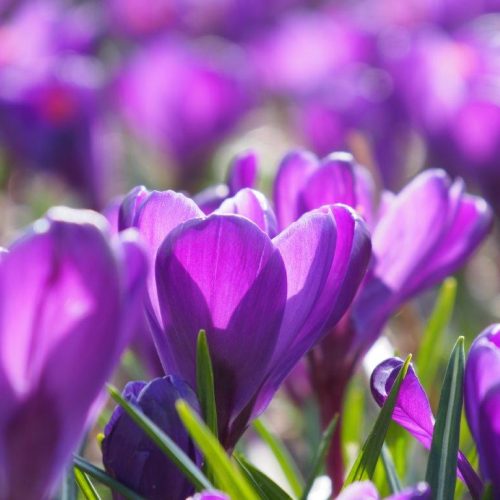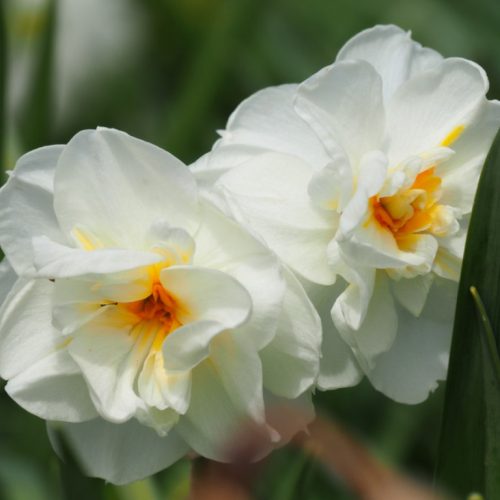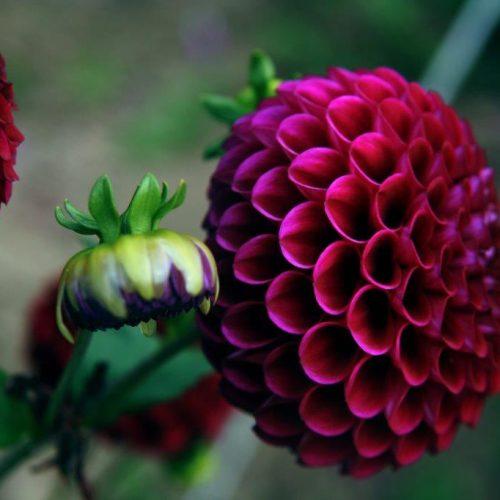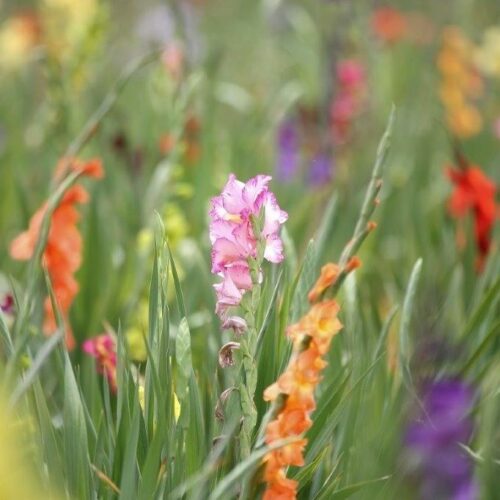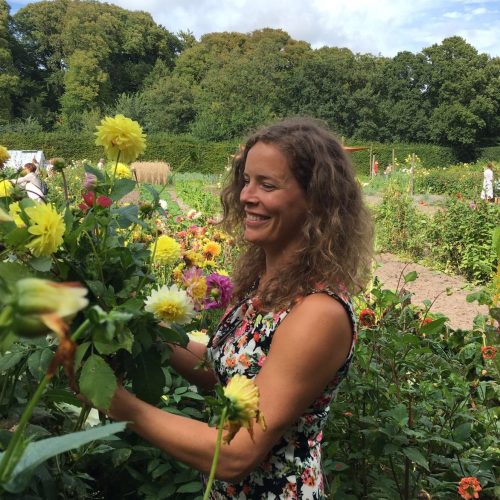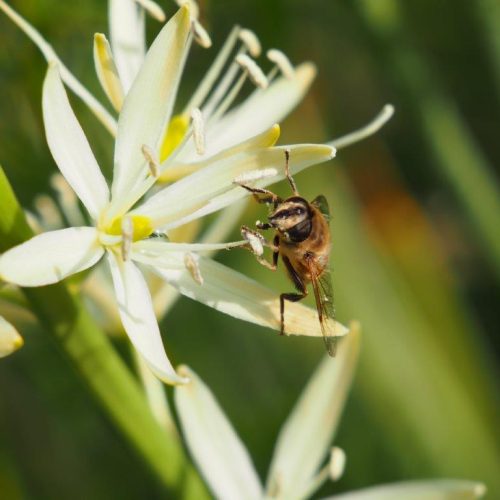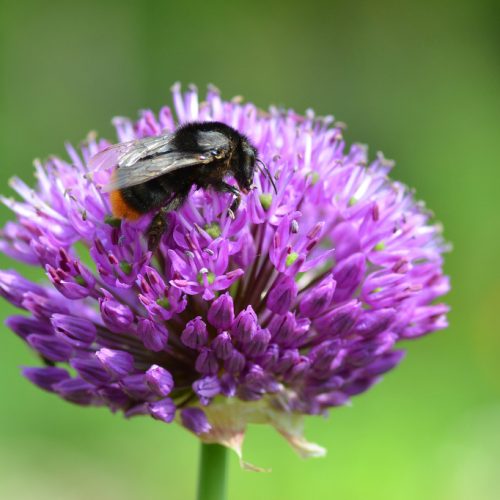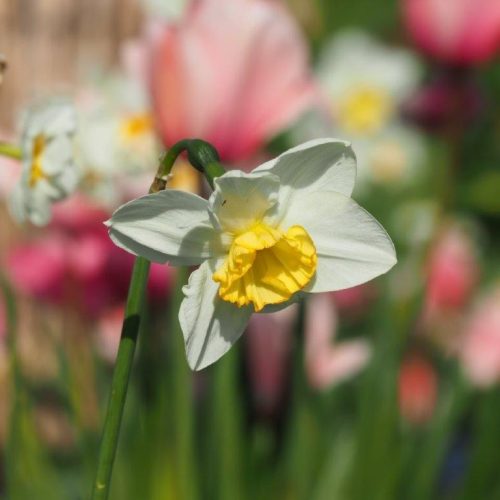Organic Flower Bulbs.
One of the benefits of organically grown flower bulbs is that they are better for nature and biodiversity. By avoiding the use of synthetic chemicals, growers can help to reduce the amount of pollution and soil degradation that can result from conventional farming practices. Organic farming methods help to support biodiversity by encouraging the growth of beneficial insects and other wildlife by adding wildflowers in their bulb fields.
Flower bulbs are easy to grow, and the range is vast, so you’re sure to find the perfect varieties for a wildlife-friendly garden. Favourites include organic daffodils, organic tulips, organic alliums and organic muscari. Our organic flower bulbs are expertly grown in the Netherlands and delivered in perfect condition for planting throughout the UK.
shop by flower bulb.
Brief History of Flower Bulbs
The history of flower bulbs is quite fascinating and spans several centuries. Flower bulbs are believed to have originated in Central Asia, where they were used as a food source by nomadic tribes. Over time, people discovered the beauty of the flowers that grew from these bulbs and began to cultivate them for decorative purposes.
One of the earliest recorded instances of bulb cultivation dates back to ancient Egypt, where lilies and other bulbs were grown in gardens and used for medicinal purposes. The Greeks and Romans also cultivated bulbs, with the latter introducing bulbs to northern Europe during their conquests.
In the 16th and 17th centuries, the Dutch became renowned for their bulb cultivation, particularly of tulips. Tulips became so popular in the Netherlands that they sparked a speculative frenzy known as “tulip mania,” during which bulbs were sold for exorbitant prices.
Despite the collapse of the tulip market, flower bulb cultivation continued to flourish in the Netherlands and other parts of Europe. Today, the Netherlands remains the world’s leading producer of flower bulbs, with tulips, daffodils, hyacinths, and crocuses among the most popular varieties. More and more growers convert to growing organic flower bulbs to protect nature for future generations.
In addition to their ornamental value, flower bulbs have played an important role in agriculture and horticulture. They are used to produce cut flowers, and many varieties are also cultivated for their edible roots or leaves.
Overall, the history of flower bulbs is a rich and diverse one that spans many cultures and centuries, and continues to be an important part of gardening and agriculture today.
